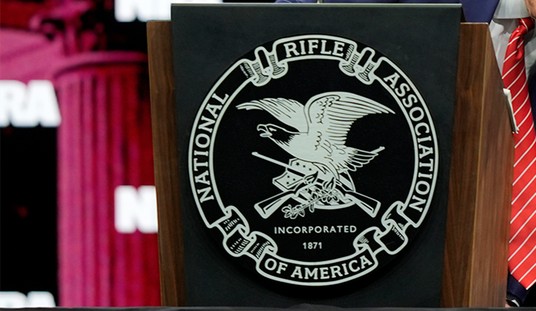Anti-gunners annoy me. It’s not the fact that they don’t like guns that bothers me, it’s that not only do they believe that this time gun control will work, they’re fully prepared and willing to keep nibbling away at our right to keep and bear arms until it does. They don’t care about gun control’s failures and will manufacture successes if they need to.
Another group that annoys me are the racial card crowd. These are the people who want to make everything about race and they think this is the one conversation we should have. Even saying you don’t care about someone’s race, that you treat them as individuals, is somehow racist these days.
So what happens when the race card and the anti-gun card get played together?
Last week, on the anniversary of the Parkland shooting, media outlets reflected on the strides in gun control that we’ve made as a result of the survivors’ movement. I want to add to the conversation by reflecting on what we can do better as we go forward.
On March 24, 2018, I marched alongside a reported 11 thousand people in Chicago’s sister March for Our Lives. When I turned on CNN later that night, I saw powerful footage of inspirational speeches and chanting crowds, and I felt proud. So when I returned to campus after spring break, I brought up the march in a conversation with an acquaintance, expecting praise. Instead, I got a staunch rebuke.
At first, I thought that maybe she was pro-gun. What other reason would there be to not support the movement?
It turned out that her issue was with the demographic representation of the victims and heroes of gun violence. I realized that I’d never really thought about the racial and socioeconomic dimensions of gun violence.
Before I begin, I want to clarify that I support the Parkland survivors and their work, but I’d like to talk about aspects about the gun control debate that the media has overlooked.
I believe the gun control debate should focus on poor urban communities. A conversation about gun control must include race, poverty and policing. Long-term solutions to resolving gun violence in cities are ones that provide vulnerable populations alternatives to street activity and police reform to restore trust between communities and law enforcement.
She goes on to talk about the “racial disparity of shooting victims” because black children are reportedly more likely to be killed by gun violence than white kids.
However, there are things she’s missing here. For one, her belief that the gun control debate should focus on poor urban communities is bogus. That’s her belief. Meanwhile, many rural and suburban people have legitimate concerns about the impact of the very gun control policies people like this initiate. It’s not as if she’s talking about just restricting guns in these urban enclaves, but throughout the land.
That means the debate has to look at the impact of such laws as a whole.
Further, the racial component is nothing more than a ham-handed attempt to try and prove that gun rights advocates are racist. However, she’s ignoring the fact that in those poor urban communities, most of those arrested for killing black children are black men. Let’s not forget, either, that 18 and 19-year-olds are routinely counted as “children” for statistical purposes, thus skewing the numbers. Nor should we forget that a large number of those “kids” are teens involved in gang activity.
Not all, mind you, but enough that I find the racial argument ridiculous.
Then again, the racial argument is almost always ridiculous.








Join the conversation as a VIP Member